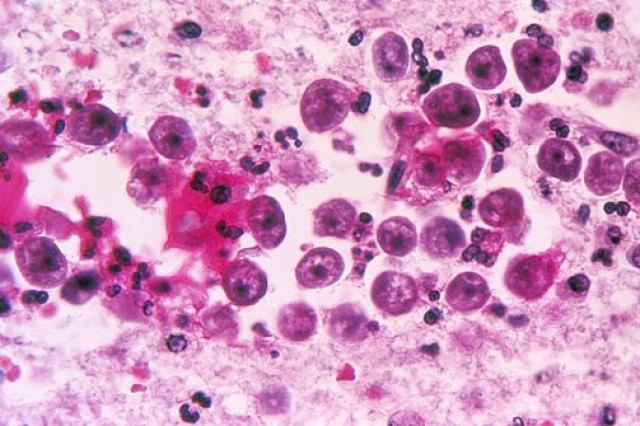Brain eating amoeba kills two in Karachi
This year five deaths have reportedly been caused by this amoeba.

Brain eating amoeba kills two in Karachi
The deceased, 28-year-old Shakeel and 34-year-old Irfan, had been under treatment in a private hospital for the infection.
Over a dozen patients are being treated for the deadly bacteria in private hospitals around the city.
This year, five deaths -- including the two today -- have reportedly been caused by the amoeba, while there have been cases in the past as well.
IDO health has asked hospital administrations around the city to be on high-alert regarding the spread of this bacteria and to report all cases to the government.
In May, Sindh Health Minister Dr Sagheer Ahmed ordered officials to ensure that all swimming pools in the city were closed for the next three to four months, following the death of a teenager from the infection, after he swam in a pool at a farm house.
In June, another case was reported but unlike the first case in May, it could not be determined where the second victim caught the parasitic amoeba from.
A committee, comprising officials from the health department, local government and the Karachi Water and Sewerage Board (KWSB), was formed after the first case and it took water samples from different areas of the city. The samples, randomly taken from different areas, showed that water in 30% of the city was without chlorine.
The amoeba breeds whenever there is slight increase in the temperature of stagnant water that has not been chlorinated.
What is Naegleria Fowleri?
Naegleria fowleri is found in warm fresh water and usually infects people when contaminated water enters the body through the nose. The amoeba passes through the nasal membranes and destroys brain tissues.
Naegleria Fowleri is a parasite, not a bacteria or a virus, and multiplies in the brain and causes inflammation, severe headaches, rigidity in neck muscles and mental confusion. The parasitic amoeba also damages brain tissues, which may result in coma and or even death within 72 hours.



















COMMENTS
Comments are moderated and generally will be posted if they are on-topic and not abusive.
For more information, please see our Comments FAQ